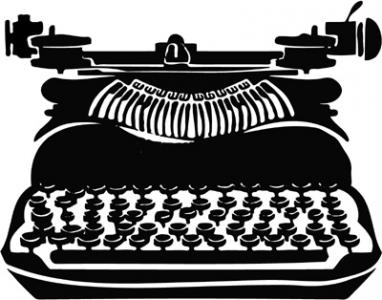The Future of Peer Review II?

Last year, Jeff Rogers wrote a blog entitled "The Future of Peer Review?". In it, he described "a recent experiment by the Shakespeare Quarterly," in which "four submitted essays were evaluated in an 'open review' internet forum hosted by MediaCommons." Ultimately, 41 anonymous reviewers posted some 350 comments, and authors were allowed to revise their work before sending it on to the journal's editors for a final evaluation.
Just this week we encounter a further evolution in peer review and digital publication. As featured on the Guardian in a post entitled "Online history book takes peer review to new level," the editors of Writing History in the Digital Age, "a volume of scholarly essays about digital technology and the historian as writer," outline the process whereby their online, collaboratory academic journal has journeyed from lab project at Trinity College to receiving a contract from The University of Michigan Press' imprint, digitalculturebooks.
"Inspired by new forms of digital publication being pioneered by colleagues across the humanities," the authors write, "we drew up plans to publish our own web-book, an edited volume of essays powered by WordPress." In June 2011 the editors launched a call for essays and ideas, asking potential authors to submit a paragraph-length summary of a topic they would like to explore (or see explored by others) in an essay for our web-book. 50+ ideas for essay topics were posted to the site in that period and participants (as well as the public) were encouraged to comment on each others' ideas. Completed essays were received in mid-August, and 30 essays were published in the web-book, which went live in early October. The web-book will undergo open peer review until 28.November; it has already received more than 500 posted comments. Feedback was invited from all readers, including expert reviewers selected by the Press. After final selection of essays, author revisions, and approval by the Press, the resulting volume will be published in print and digital forms. The editors intend to keep the current web-book, including all comments, publicly accessible.
What is perhaps most notable, however, is what happened behind the scenes of this process. The editors, tasked with such a radical production process, have had to renegotiate what it means to edit a collection of essays. "In addition to fulfilling the responsibilities you might expect of the editors of a conventional scholarly volume," they note, "we've also been editors of and participants in the ongoing public discussions about the essays – our own included – in the comment threads within our web-book." Additionally, they have been tasked with producing "constant PR, blogging, emailing and tweeting to draw traffic to our site at each phase of the volume's development" in addition to serving as "web-site designers and code-writers, as human spam-filters and troubleshooters, and as guides and instructors to contributors unfamiliar with WordPress."
Opening up the peer review process brings with it many possibilities. It can democratize information and open the mystery of the editing process, but it will require dedicated, multitalented people to oversee and serve the mechanics of whatever processes are attempted. In addition, given this openness in the production process, I cannot help but wonder whether the work will have already saturated its intended audience. In other words: who is going to buy this when it's basically already up there on the web?
We'll have to wait and see...